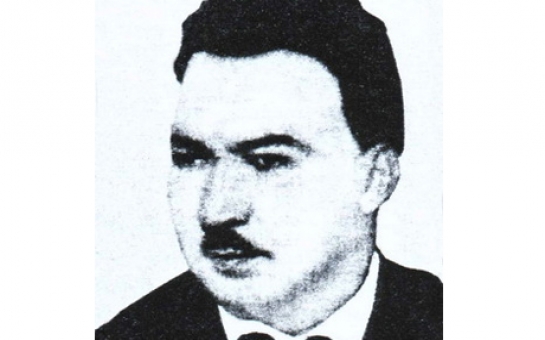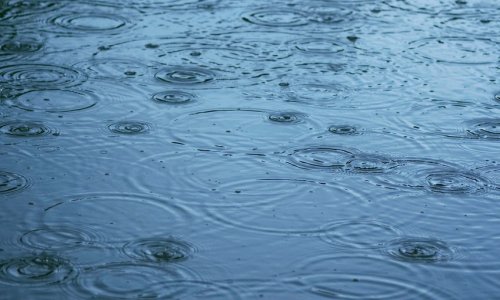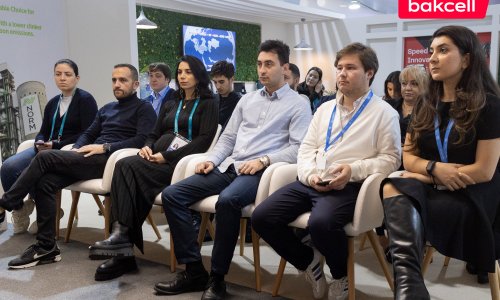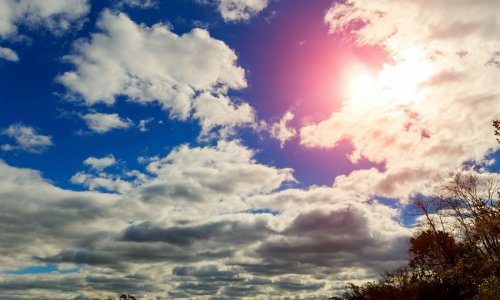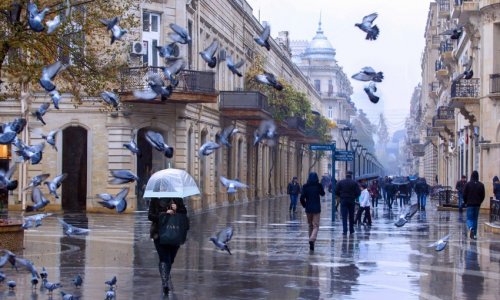The grandson of Imam Shamil, Mohammed Said Bey (1901-1981), was born in Istanbul and graduated from the prestigious Galatasaray Lyceum. Besides his native Avar, he also spoke Turkish, Arabic, French, English and Russian.
Said's father, Muhammad Kamil (1863-1951), the youngest son of Imam Shamil, who was born in Kaluga, did not manage to see his native land of Dagestan. Living in Turkey, he was promoted to General of the Turkish Army.
Different was the fate of Said Bey, whose young age coincided with a turning point in the history of both the Ottoman Empire and Dagestan. On May 11, 1920 in the Chechen village of Kapsch (near Vedeno) there was a congress of Highlanders, which were invited to elect the leader of the national liberation movement, Muhammad Kamil. Muhammad Kamil, being sick, sent to the Caucasus as a representative his 19-year-old son. Thus began the political activity of Said Bey Shamil. Arriving in Dagestan in September 1920, Said Bey together with Imam N. Gotsinsky managed to organize a major uprising against the Bolsheviks. The rebels occupied the main mountain areas of Chechnya and Dagestan, including Fortress Vedeno. However, in the spring of 1921 the uprising was suppressed.
After the occupation of the North Caucasus by the Bolsheviks, seriously wounded Said Bey left home and got through Georgia to Istanbul, where he continued his anti-Bolshevik activities. True, Said Bey Shamil together with other Caucasian political emigres (many of whom were deprived of Turkish citizenship) were soon expelled from Turkey on the initiative of President Ataturk and settled in Warsaw.
As the leader of the People's Party of the Highlanders of the Northern Caucasus, Said Bey Shamil in 1926 became one of the founders and committee chairmen for the independence of the Caucasus. Within the Promethean Movement, he worked closely with Azerbaijani political emigres, and primarily with M.E. Rasulzade.
Said Bey Shamil is the author of many articles and books - Socialism and External Turks and Palestinian Problem. The proposed article by the grandson of Imam Shamil, Said Bey, was published in the journal № № 4-5 Les Montagnards du Caucase (Highlanders of the Caucasus) in Paris in 1929.
11 MAY - BIRTHDAY OF INDEPENDENCE FOR CAUCASIAN HIGHLANDERS
On this day, 3.5 million Caucasian highlanders in the face of the civilized world declared their independence. But fate has not been kind to this small and valiant nation. The peoples of the Northern Caucasus that defended their sacred land and its heritage for centuries, had just come out from under Russian imperial oppression to become victims of Russian imperialism again. The revolution of 1917, freeing people from the tsarist rule, essentially was a small respite, after which the Russian revolutionaries began to compete successfully with the reactionary generals of the fallen regime in the suppression of non-Russian borderlands of old imperial Russia.
It has been nine years since our Independence Day and our national holiday on May 11 was drawn in mourning crepe. We can not predict or anticipate what will be the nearest tenth anniversary of that day. But those who are familiar with the current domestic situation in Russia, who are closely following the development of the political and economic crises in it, can expect the future anniversary with more hope and faith. Both politically and economically Soviet Russia is in a deadlock. Some people are in a state of moral disease. The Soviet administration lost as if all signs of healthy vitality. Red Army - "the brainchild of the people" is only the external scenery might of the Soviet power. The Party - the only support of the regime - is itself experiencing a dangerous disease expansion. It is now possible to see all the nuances, all the trends, and along the distance from the center to the periphery of the Soviet state the tendency towards national separatism is felt increasingly. This latter circumstance dictates that we should not only listen carefully to what is happening there, but poses challenges to help design and organization of nascent party forces in Ukraine, the Caucasus and Turkestan. In the compound of our forces and efforts is the success of our business, a new guarantee of the triumph of our ideas of national independence.
There is another factor that has yet to be crucial in our fight for our right to national independence.
During those tragic years for us the world had a chance to see the actual state of Russia. Now everyone knows that, covering a half of Europe and a half of Asia, Russia is inhabited not only by the Russian people, but also by other nations, which provide a cultural equivalent and are totally equal to the Russians in number. The world has learned and realized that 35 million Ukrainians, 15 million Turkestan people and 12 million people of the Caucasus are all elements, ethically and culturally different from the Russian people. The world has learned not only the fact, but also realized that all these people are still oppressed by the Russians and are quite worthy to become equal members in the family of nations. For our part, we know that this is obvious, but this truth still staying in the shade begins to acquire the greater reality while the Russian threat to the security of Europe and Asia is becoming more realistic.
The only means to defend civilization and peace all over the world from the Russian invasion, whether under the guise of dreamy Slavism, or under the banner of revolutionary Bolshevism, is to recognize the right of the nations groaning under the yoke of Soviet Russia to independence.
In fact, is Europe not obliged to be grateful for its tranquility and peace very largely to the free public existence of Finland , Estonia, Latvia , Lithuania and Poland liberated from the Russian rule?
It is impossible to put up with the idea that the rights recognized for these nations, our brothers from yesterday's unfortunate stay under foreign yoke, will not be recognized also for peoples of the Caucasus, Ukraine and Turkestan.
Only recognizing and providing national independence for the peoples is the best and surest means of securing peace.
Peace and freedom of peoples is a prerequisite for normal economic development around the world.
That is why we believe that protecting our combat, our national freedom, we at the same time protect the universal matter, defending civilization, and that our struggle for our own liberation is also the struggle for peace and prosperity around the world. This belief strengthens our faith and gives us hope for a brighter future. We must also apply the other way - toward the Russian people.
One fact is given and remains absolutely indispensable; there is an internal communication and complete coincidence of the aggressive imperialist doctrines of the Russian tsarist regime and the leaders of the Russian Bolshevik revolutionaries, and even the ultra-liberal Democrats - Russian nationalists par with us staying in the crucible of grave national tests also dream of the same policy of conquest.
And thinking about it, we can not refrain from the thought that in the recesses of the soul we just have to curse fate that put us in close proximity with the real enemy!
Yes, we should just remind the Russians that Russia will find real happiness in its natural national boundaries, and not in Ukraine, the Caucasus or Turkestan.
Russia's path towards these countries was designated in advance with fire and blood. The Bolshevik regime will fall as well as the royal regime fell. The struggle for our national independence will continue until the enemies yield to its holy truth. Implementation of our national independence is a requirement of life itself. It is inevitable.
ANN.Az

